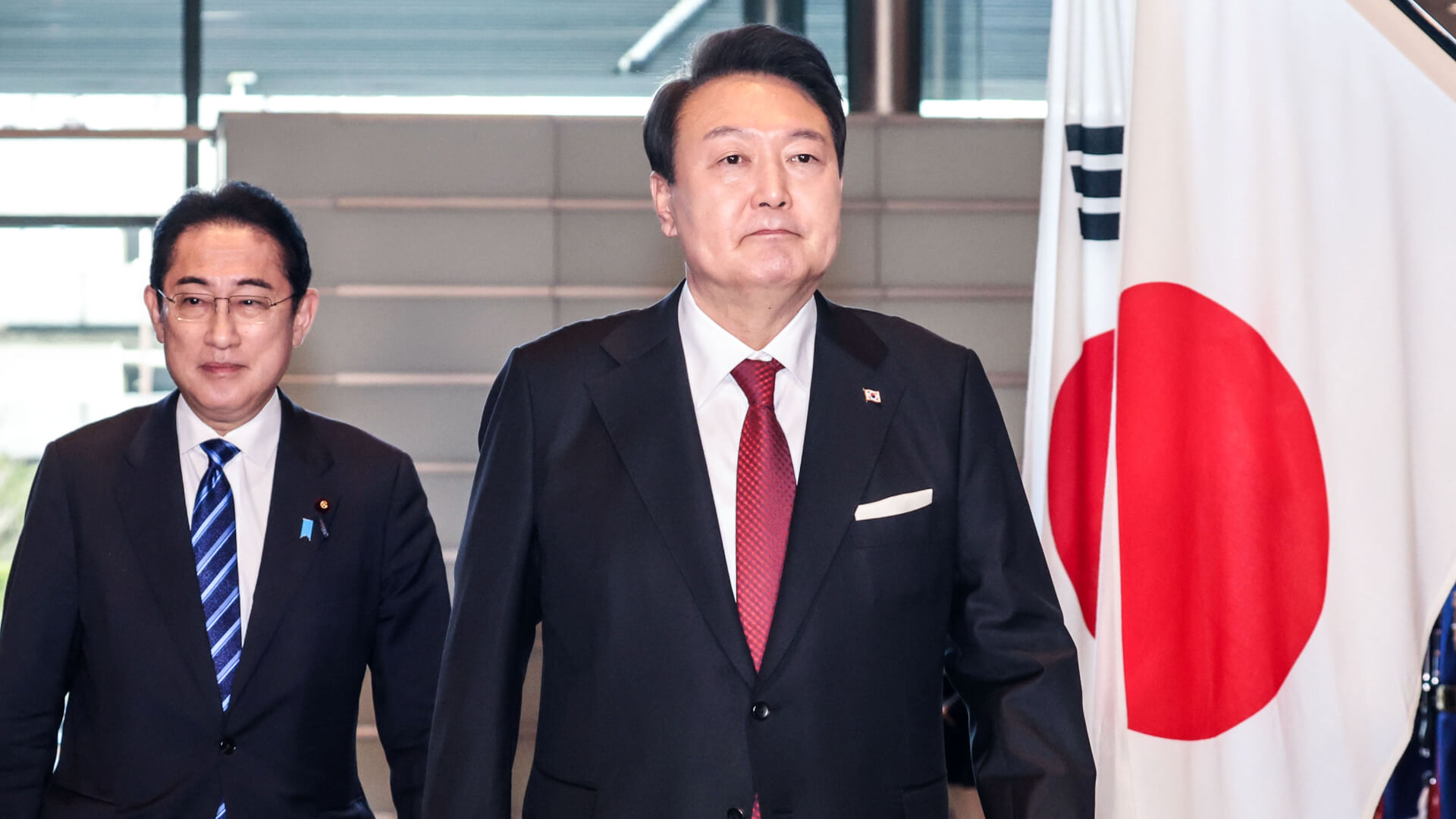Current Events
In early March, South Korea and Japan announced that they agreed to set aside their century-long differences and stand together to face growing threats from North Korea.
South Korean Foreign Minister (FM) Park Jin said that, as part of the peace deal, Korean victims of the forced labour issue from World War II (WWII) would be compensated through a local foundation, which would be funded by private-sector companies that were beneficiaries of a 1965 reparations treaty with Japan.
Moreover, both countries agreed to resume reciprocal visits and resolve trade disputes that began in 2019. In addition, they decided to normalise GSOMIA — an intelligence-sharing agreement that the South had previously threatened to scrap.
History
Tensions between the two Asian countries had been running high ever since Japanese troops were accused of the systematic rape of Korean girls and women during WWII. In addition, almost 150,000 Koreans were forced to work in Japanese factories and mines during Japan’s colonisation of the Korean peninsula for over three decades from 1910-1945.
For a long time, these historic disputes have fractured relations between the two countries, even in their modern ties, and prevented them from fully tapping into their joint potential across several domains.
However, with North Korea gaining access to highly advanced technology, it has become imperative that the two set aside their differences to jointly defend their threatened regional security.
South Korean President Yoon Suk Yeol and Japanese Prime Minister Fumio Kishida pledged to turn the page on years of animosity to work together to counter threats from North Korea and China's growing influence on the international stage https://t.co/0brRHKDgB2 pic.twitter.com/iOL1iAO35V
— Reuters (@Reuters) March 16, 2023
Protests
Despite the broader gains of the normalisation plan, Yoon Suk-yeol’s government drew immediate backlash from victims of the wartime forced labour atrocity, who criticised the government for not demanding direct compensation from the Japanese companies. In addition, they also demanded that Tokyo issue a fresh apology for its wartime atrocities against Korean citizens.
Lim Jae-sung, a lawyer representing some of the plaintiffs, wrote on Facebook that the move was “an absolute win by Japan, which insists it cannot spend 1 yen on the forced labour issue.” “Basically, the money of South Korean companies would be used to erase the forced labourers’ rights to receivables,” he wrote.
Regional Security Implications
As part of the latest efforts to normalise ties, both sides also agreed to resume their security dialogue, which should help them to better coordinate on mutual security concerns, such as an increasingly belligerent North Korea and a dominant China in the Indo-Pacific.
“South Korea’s interests are not zero-sum with Japan’s interests. Better bilateral relations would “greatly help both countries deal with their security crises,” Yoon said during his meeting with Kishida. He called on Korea and Japan to “closely cooperate in solidarity to wisely deal with these illegal threats.”
A smoothened relationship will also make it easier for the US to collaborate trilaterally with the two Asian powers. Referring to the normalisation, US State Department spokesperson Ned Price said last month that the country “heartily welcomed the announcement.”
Following this, the three countries also staged anti-submarine drills that were simulated to counter an attack from the North.

